4-tert-Butyl-2,6-dinitro-3-methoxytoluene
- CAS NO.:83-66-9
- Empirical Formula: C12H16N2O5
- Molecular Weight: 268.27
- MDL number: MFCD00024268
- EINECS: 201-493-7
- SAFETY DATA SHEET (SDS)
- Update Date: 2024-12-18 13:37:16
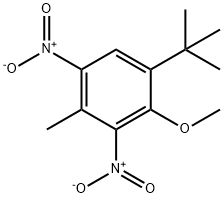
What is 4-tert-Butyl-2,6-dinitro-3-methoxytoluene?
The Uses of 4-tert-Butyl-2,6-dinitro-3-methoxytoluene
Musk Ambrette is an artificial human musk used in cosmetics as well as in the treatments of wastewaters.
Definition
ChEBI: Musk ambrette is a C-nitro compound.
Preparation
Musk Ambrette is produced from meta-Cresolmethylether with iso-Butylchloride (or iso-Butylene) followed by Nitration of the ether.
General Description
Pale yellow liquid. Insoluble in water.
Air & Water Reactions
Insoluble in water.
Fire Hazard
The flash point of 4-tert-Butyl-2,6-dinitro-3-methoxytoluene has not been determined, but 4-tert-Butyl-2,6-dinitro-3-methoxytoluene is probably combustible.
Safety Profile
A poison by ingestion. Mutation data reported. A skin irritant. When heated to decomposition it emits toxic fumes of NO,. See also AROMATIC AMINES.
Solubility in organics
3.3% soluble in alcohol, 37% soluble in Diethylphthalate, 50% soluble in Benzylbenzoate, practically insoluble in Terpenes or mineral oil.
Properties of 4-tert-Butyl-2,6-dinitro-3-methoxytoluene
| Melting point: | 84-86°C |
| Boiling point: | 185 °C / 16mmHg |
| Density | 1.2529 (rough estimate) |
| refractive index | 1.5460 (estimate) |
| storage temp. | -20°C Freezer, Under inert atmosphere |
| solubility | Chloroform (Slightly), Methanol (Slightly) |
| form | Solid |
| color | Pale Yellow to Pale Green |
| Odor | at 10.00 % in benzyl benzoate. musty sweet ambrette seed |
| CAS DataBase Reference | 83-66-9(CAS DataBase Reference) |
| IARC | 3 (Vol. 65) 1996 |
| NIST Chemistry Reference | 1-Methyl-4-t-butyl-3-methoxy-2,6-dinitrobenzene(83-66-9) |
| EPA Substance Registry System | Musk ambrette (83-66-9) |
Safety information for 4-tert-Butyl-2,6-dinitro-3-methoxytoluene
| Signal word | Warning |
| Pictogram(s) |
 Exclamation Mark Irritant GHS07 |
| GHS Hazard Statements |
H302:Acute toxicity,oral H315:Skin corrosion/irritation H317:Sensitisation, Skin H319:Serious eye damage/eye irritation |
| Precautionary Statement Codes |
P261:Avoid breathing dust/fume/gas/mist/vapours/spray. P264:Wash hands thoroughly after handling. P264:Wash skin thouroughly after handling. P270:Do not eat, drink or smoke when using this product. P272:Contaminated work clothing should not be allowed out of the workplace. P280:Wear protective gloves/protective clothing/eye protection/face protection. P501:Dispose of contents/container to..… |
Computed Descriptors for 4-tert-Butyl-2,6-dinitro-3-methoxytoluene
| InChIKey | SUAUILGSCPYJCS-UHFFFAOYSA-N |
4-tert-Butyl-2,6-dinitro-3-methoxytoluene manufacturer
Kanha Nature Oils
New Products
(S)-3-Aminobutanenitrile hydrochloride 4-Methylphenylacetic acid N-Boc-D-alaninol N-BOC-D/L-ALANINOL Tert-butyl bis(2-chloroethyl)carbamate 3-Morpholino-1-(4-nitrophenyl)-5,6-dihydropyridin- 2(1H)-one Furan-2,5-Dicarboxylic Acid Tropic acid 1-Bromo-3,5-Di-Tert-Butylbenzene S-2-CHLORO PROPIONIC ACID ETHYL ISOCYANOACETATE 2-Bromo-1,3-Bis(Dimethylamino)Trimethinium Hexafluorophosphate 4-IODO BENZOIC ACID 3-NITRO-2-METHYL ANILINE 1-(2,4-DICHLOROPHENYL) ETHANAMINE (2-Hydroxyphenyl)acetonitrile 4-Bromopyrazole 2-(Cyanocyclohexyl)acetic acid 4-methoxy-3,5-dinitropyridine 1-(4-(aminomethyl)benzyl)urea hydrochloride 2-aminopropyl benzoate hydrochloride diethyl 2-(2-((tertbutoxycarbonyl)amino) ethyl)malonate tert-butyl 4- (ureidomethyl)benzylcarbamate Ethyl-2-chloro((4-methoxyphenyl)hydrazono)acetateRelated products of tetrahydrofuran
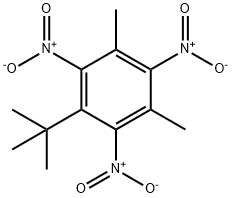
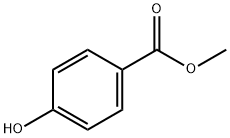
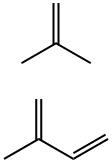


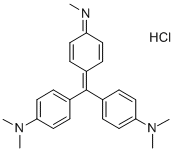

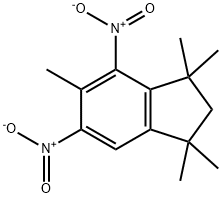
You may like
-
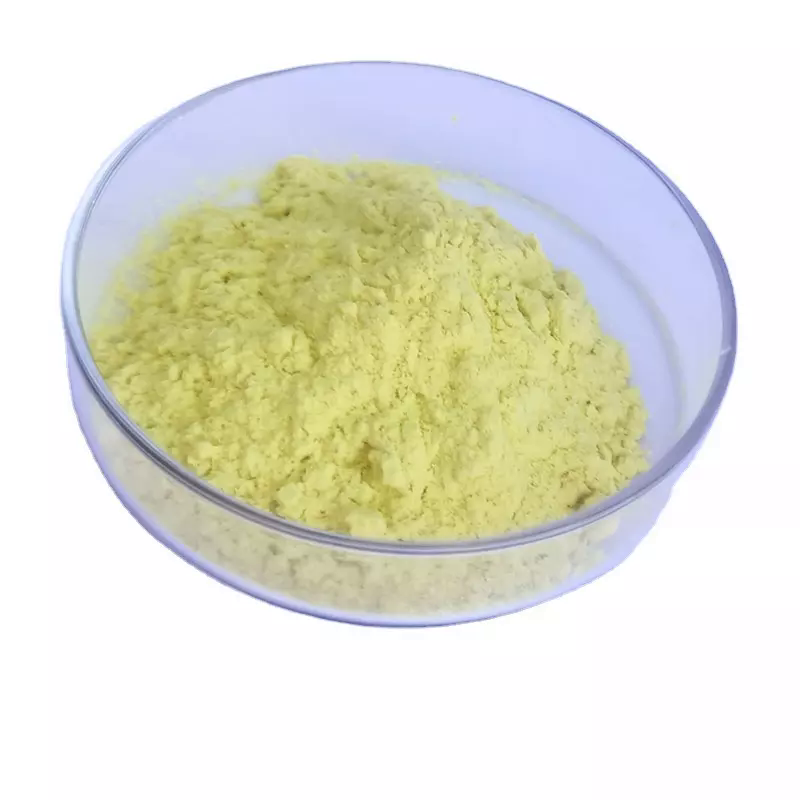 83-66-9 Musk Amberette 98%View Details
83-66-9 Musk Amberette 98%View Details
83-66-9 -
 4-tert-Butyl-3-methoxy-2,6-dinitrotoluene CAS 83-66-9View Details
4-tert-Butyl-3-methoxy-2,6-dinitrotoluene CAS 83-66-9View Details
83-66-9 -
 Musk Ambrette CAS 83-66-9View Details
Musk Ambrette CAS 83-66-9View Details
83-66-9 -
 1975-50-4 98%View Details
1975-50-4 98%View Details
1975-50-4 -
 2-HYDROXY BENZYL ALCOHOL 98%View Details
2-HYDROXY BENZYL ALCOHOL 98%View Details
90-01-7 -
 2-Chloro-1,3-Bis(Dimethylamino)Trimethinium Hexafluorophosphate 221615-75-4 98%View Details
2-Chloro-1,3-Bis(Dimethylamino)Trimethinium Hexafluorophosphate 221615-75-4 98%View Details
221615-75-4 -
 14714-50-2 (2-Hydroxyphenyl)acetonitrile 98+View Details
14714-50-2 (2-Hydroxyphenyl)acetonitrile 98+View Details
14714-50-2 -
 118753-70-1 98+View Details
118753-70-1 98+View Details
118753-70-1